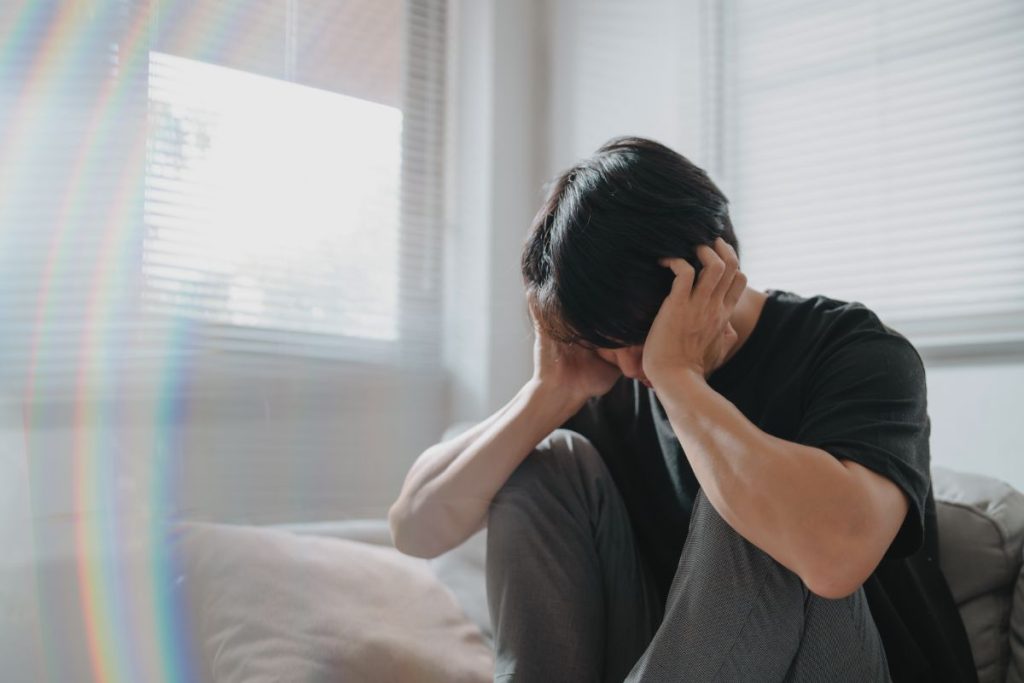Social Phobia vs Social Anxiety: The Differences
Social interactions are a fundamental part of daily life, yet for some people, they can be a source of overwhelming fear or discomfort. While the terms social phobia and social anxiety are often used interchangeably, they are not quite the same. Both conditions can significantly affect a person’s quality of life, but understanding their differences is crucial for identifying appropriate treatment strategies.
In this article, we’ll break down the distinctions between social phobia and social anxiety, helping you better understand these mental health conditions. At The Meadowglade, located in Moorpark, California, we specialize in treating a wide range of mental health concerns, including anxiety disorders. Whether you or a loved one are struggling, this article aims to provide clarity and direction for finding the support you need.
What Is Social Phobia?
Social phobia, also known as social anxiety disorder, is characterized by an intense, irrational fear of social situations where a person might be judged or embarrassed. This fear goes beyond typical shyness or nervousness. Individuals with social phobia often avoid certain situations entirely to prevent potential humiliation or scrutiny.
Common Symptoms of Social Phobia
- Excessive worry about upcoming social events.
- Fear of being watched or judged during routine activities like eating or speaking in public.
- Physical symptoms such as sweating, trembling, or a racing heart when faced with social interactions.
- Avoidance of social situations to prevent feelings of embarrassment or panic.
Impact on Daily Life
Social phobia can disrupt everyday activities, from attending school or work to building personal relationships. Left untreated, this condition can lead to isolation and a decreased quality of life.
What Is Social Anxiety?
Social anxiety, on the other hand, is a broader term that encompasses general feelings of nervousness or discomfort in social settings. While not as severe as social phobia, social anxiety can still interfere with a person’s ability to engage fully in interactions.
Key Characteristics of Social Anxiety
- Feeling uneasy or self-conscious in specific social situations, such as meeting new people or speaking in groups.
- Worrying about saying or doing the wrong thing, but not to the extent of avoiding these situations altogether.
- Mild physical symptoms like blushing or a fluttering stomach.
Unlike social phobia, social anxiety does not necessarily lead to complete avoidance of social settings but may cause individuals to feel uneasy or hesitant.
Social Phobia vs. Social Anxiety: Key Differences
While social phobia and social anxiety share similarities, they differ in intensity and impact:
1. Severity of Symptoms
- Social phobia is more severe, often causing debilitating fear and avoidance.
- Social anxiety typically involves milder symptoms that allow individuals to engage in social situations, albeit with discomfort.
2. Impact on Daily Life
- Social phobia can disrupt daily routines and significantly limit opportunities for personal and professional growth.
- Social anxiety might only create occasional challenges, such as nervousness during public speaking.
3. Emotional Response
- Social phobia involves intense fear and distress, often leading to avoidance behaviors.
- Social anxiety includes feelings of nervousness or self-consciousness but does not always result in avoidance.
Understanding these distinctions is essential for identifying the appropriate treatment approach for each condition.
What Causes Social Phobia and Social Anxiety?
Both social phobia and social anxiety can stem from a combination of genetic, environmental, and psychological factors.
Potential Causes Include:
- Genetics: A family history of anxiety disorders may increase susceptibility.
- Traumatic Experiences: Past experiences of bullying, ridicule, or rejection can contribute to the development of social fears.
- Brain Chemistry: Imbalances in neurotransmitters like serotonin may play a role in both conditions.
- Personality Traits: Individuals with naturally introverted or perfectionist tendencies might be more prone to social anxiety.
Identifying the underlying causes can help guide effective treatment.
Treatment Options for Social Phobia and Social Anxiety
Managing social phobia or social anxiety often requires a combination of therapies tailored to individual needs.
1. Cognitive Behavioral Therapy (CBT)
Cognitive-behavioral therapy (CBT) is a widely used treatment that helps individuals challenge negative thought patterns and develop healthier coping mechanisms.
2. Exposure Therapy
Exposure therapy involves gradually exposing individuals to feared social situations in a controlled environment, helping them build confidence over time.
3. Medication
In some cases, antidepressants or anti-anxiety medications may be prescribed to alleviate severe symptoms.
4. Support Groups
Participating in support groups can provide individuals with a sense of community and shared understanding, helping to reduce feelings of isolation.
When to Seek Help
If social phobia or social anxiety begins to interfere with daily life, seeking professional support is crucial. Symptoms such as persistent avoidance of social settings, extreme fear of judgment, or physical symptoms during interactions are signs that intervention may be necessary.
Contact Us For Support
While social phobia and social anxiety share commonalities, their differences in severity and impact are important to recognize. Understanding these distinctions can help individuals and their families take the first step toward effective treatment and recovery.
At The Meadowglade, we understand the challenges of living with anxiety disorders like social phobia and social anxiety. Our compassionate team offers personalized treatment plans designed to empower individuals to overcome these obstacles and lead fulfilling lives.
If you or a loved one are struggling, don’t wait to seek help. Contact us today to learn more about our services and how we can support you on your journey to healing and self-confidence.

